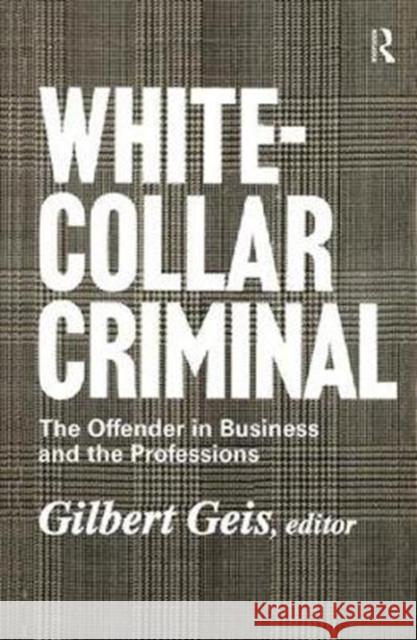White-Collar Criminal: The Offender in Business and the Professions » książka
topmenu
White-Collar Criminal: The Offender in Business and the Professions
ISBN-13: 9781138540521 / Angielski / Twarda / 2017 / 448 str.
White-Collar Criminal: The Offender in Business and the Professions
ISBN-13: 9781138540521 / Angielski / Twarda / 2017 / 448 str.
cena 751,42
(netto: 715,64 VAT: 5%)
Najniższa cena z 30 dni: 654,86
(netto: 715,64 VAT: 5%)
Najniższa cena z 30 dni: 654,86
Termin realizacji zamówienia:
ok. 16-18 dni roboczych.
ok. 16-18 dni roboczych.
Darmowa dostawa!
In his presidential address to the American Sociological Society more than a quarter of a century ago, Edwin H











